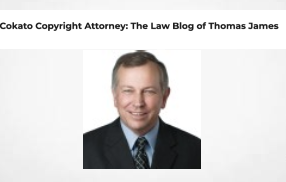26 October 2024
In 1998, Congress enacted the Digital Millenium Copyright Act (“DMCA”). In addition to establishing the notice-and-take-down regimen with which website and blog owners are (or should be) familiar, the DMCA made it unlawful to “circumvent a technological measure that effectively controls access to” copyrighted material. (17 U.S.C. § 1201(a)(1)(A)). The Act set out some permanent exemptions, i.e., situations where circumvention is allowed. In addition, it gave the Librarian of Congress power to periodically establish new ones. These additional exemptions are temporary, lasting for three years, but the Librarian of Congress can and does renew them. On October 18, 2024, the Librarian of Congress issued a Final Rule renewing some exemptions and creating some new ones.
What is “circumvention of a technological measure”?
Circumventing a technological measure means “to descramble a scrambled work, to decrypt an encrypted work, or otherwise to avoid, bypass, remove, deactivate, or impair a technological measure, without the authority of the copyright owner.” (17 U.S.C. § 1201(a)(3)(A)).
So, no decrypting or unscrambling to get access to a copyrighted work. What else? Well, anything that involves avoiding or bypassing a technological measure without the copyright owner’s permission. You can’t do that, either.
A technological measure that “controls access to a work” can be anything that “requires the application of information, or a process or a treatment, with the authority of the copyright owner,” to gain access to the work.” (17 U.S.C. § 1201(a)(3)(B)). Entering a password-protected website without a password the copyright owner has authorized you to use is an example.
The permanent exemptions
Section 1201 of Title 17 lists permanent exemptions for:
- Nonprofit libraries, archives, and educational institutions that circumvent copyright protection measures solely for the purpose of determining whether to acquire a copy of the work for a permitted purpose
- Law enforcement, intelligence, and government activities
- Reverse engineering
- Encryption research
- Prevention of access of minors to material on the Internet
- Prevention of the collection or dissemination of personally identifying information
- Security testing
Detailed conditions apply to each of these exemptions. If you are thinking of invoking one of them, read the entire statutory provision carefully and seek professional legal advice.
Renewed temporary exemptions
The following temporary exemptions have been renewed for another 3-year term:
- Fair use of short portions of motion pictures for certain educational and derivative uses
This includes use in a parody or in a documentary film about the work’s biographical or historically significant nature; use in a noncommercial video; use in nonfiction multimedia e-books; use for educational purposes by educational institution faculty and students; educational uses in Massive Open Online Courses; and educational uses in nonprofit digital and media literacy programs offered by libraries, museum, and other organizations.
- Closed captioning and other disability access services by disability service offices or similar units at educational institutions for students, faculty or staff with disabilities
- Preservation of copies of motion pictures by an eligible library, archives, or museum
- Scholarly research and teaching involving text and data mining of motion pictures or electronic literary works by researchers affiliated with a nonprofit educational institution
- Literary work or previously published sheet music that is distributed electronically and include access controls that interfere with assistive technologies
- Access to patient data on medical devices or monitoring systems
- Computer programs that unlock wireless devices to allow connection of a device to an alternative wireless network
- “Jailbreaking” computer programs (computer programs that enable electronic devices to interoperate with or to remove software applications), for the purpose of jailbreaking smartphones and other portable all-purpose computing devices, smart televisions, voice assistant devices, and routers and dedicated networking devices
- Computer programs that control motorized land vehicles, marine vessels, and mechanized agricultural vehicles for the purposes of diagnosis, repair, or modification of a vehicle or vessel function
- Diagnosis, maintenance or repair of devices designed primarily for use by consumers
- Access to computer programs that are contained in and control the functioning of medical devices or systems, and related data files, for purposes of diagnosis, maintenance, or repair
- Security research
- Individual play by video gamers and preservation of video games by a library, archives or museum for which outside server support has been discontinued, and preservation by a library, archives, or museum of discontinued video games that never required server support
- Preservation of computer programs by libraries, archives, and museums
- Computer programs that operate 3D printers to allow use of alternative material
- Investigation of potential infringment of free and open-source computer programs
Again, detailed conditions apply to each of these exemptions. If you are thinking of invoking one of them, read the entire provision carefully and seek professional legal advice.
New Exemptions
New 3-year exemptions the Librarian of Congress just announced in October, 2024 include:
- Sharing of copies of corpora by academic researchers with researchers affiliated with other nonprofit institutions of higher education for purposes of conducting independent text or data mining research and teaching, where those researchers are in compliance with the exemption
- Diagnosis, maintenance and repair of retail-level commercial food preparation equipment
- Access, storage and sharing of vehicle operational and telematics data generated by motorized land vehicles and marine vessels
And once again, detailed conditions apply to each of these exemptions. If you are thinking of invoking one of them, read the entire provision carefully and seek professional legal advice.
Confused by copyright, trademark and other IP issues? Read my book, IP Law for Non-IP Attorneys, available on Amazon.com




